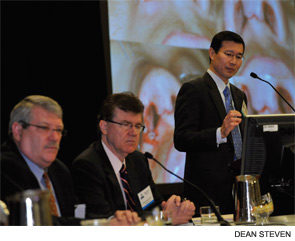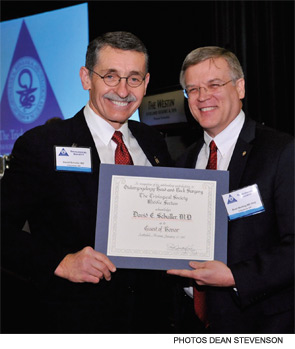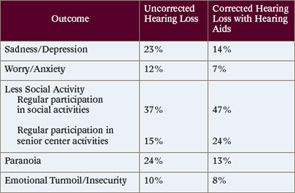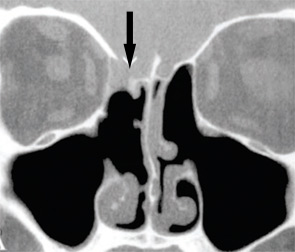What should residency/fellowship program directors and residents making career choices know about recent trends regarding otolaryngology-head and neck surgery residents? Background: Otolaryngology, which over the years has evolved into a complex […]

Closing the Knowledge Gap: New food allergy guidelines provide clarity to some otolaryngologists

Treatment Options: Study reports neck dissection effective in patients with residual disease
Patients who had residual neck disease after treatment for a primary head and neck squamous carcinoma and then underwent neck dissection had comparable survival rates to those who had their disease resolved after their initial chemotherapy and radiation treatment, according to a retrospective analysis from researchers at the University of Louisville in Kentucky presented here Jan. 27.

A Clinical Challenge: Nasal valve compromise can be a dicey problem, panelists say
Problems with the nasal valve that lead to difficulty with breathing can be tricky, in terms of both diagnosis and treatment, said a group of experts here at the Triological Society’s Combined Sections Meeting on Jan. 28.

Research Overhaul: Changes to cancer research organizations on the horizon, expert says
The system of clinical cancer research, including that of head and neck cancer, is in need of an overhaul, but steps are being taken that might lead to more efficient work and will hopefully mean more medical breakthroughs, said David Schuller, MD, the chair in cancer research at the Ohio State University College of Medicine in Columbus, at the Triological Society’s Combined Sections Meeting, held here on Jan. 27.

Falling on Deaf Ears: Hearing loss in older adults may be an undertreated condition
Most people will experience some degree of hearing loss as they age. Statistics from the National Institute on Deafness and Other Communication Disorders at the National institutes of Health (NIH) indicate that 30 percent of adults ages 65 to 74, and 47 percent of adults 75 years or older, have hearing loss.
A New Direction for Sleep: New OSA guidelines fuel another evidence-based medicine debate
Recent publication of practice parameters for surgery in adults with obstructive sleep apnea (OSA) by the American Academy of Sleep Medicine (AASM) has set off another round of debate on the need for otolaryngologists to get involved in generating their own guidelines. Although otolaryngologists have yet to agree on whether or not the time is right for guidelines on surgical treatment for sleep apnea, consensus can be claimed regarding the need perceived by the American Academy of Otolaryngology–Head and Neck Surgery (AAO-HNS) to get on the evidence-based bandwagon.

Lingering Issues: Challenges remain in repairing CSF leaks
Once the province of neurosurgeons, cerebrospinal fluid (CSF) leak repair is now handled mostly by otolaryngologists. This change has occurred over the past couple of decades, during which time the evolution of endoscopic tools and techniques has made possible extracranial rather than intracranial repair. The success rate for repairing these leaks from below has reached about 90 percent, particularly for small leaks.
Response from the editor
Dr. Sims has eloquently identified the value of diversity not only in otolaryngology, but also its contribution to the strength of the U.S. as a nation. Drs. Kuppersmith and Thomas have responded to his editorial indicating steps that the AAO-HNS has taken and is currently taking to increase diversity.
Resident Restructure: Attendings adjust to new work-hour rules
The new duty hour regulation from the Accreditation Council for Graduate Medical Education (ACGME) that limits first-year residents to 16-hour shifts has drawn a conflicted chorus of reactions from attendings, who have only seven months before the stipulation goes into effect.
- « Previous Page
- 1
- …
- 12
- 13
- 14
- 15
- 16
- …
- 35
- Next Page »